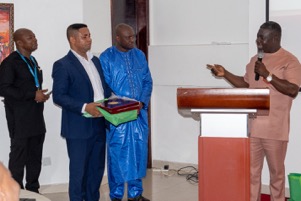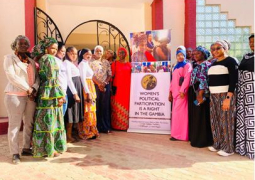
Sub-Saharan Africa Skills and Apprenticeship Stakeholders Network (SASASNET) in collaboration with the International Labour Organisation (ILO) recently concluded a 2-day African Regional Capacity Building Workshop on Recognition of Prior Learning (RPL) and Sector Skills Bodies (SSB) for its members countries in Accra, Ghana.
The regional workshop attracted more than 90 participants from SASASNET member countries in sub-Saharan Africa. It was the first in a line-up of activities following the formal launch of the continental organisation in Abuja in July this year.
“The workshop was organised to enhance the capacity of policy makers and regulators from government, members of skills councils, TVET authorities and training providers, social partners, practitioners, and experts on global initiatives and best practices in RPL and Sector Skills Councils/Bodies,” said Hon. Ousman Sillah, Secretary General of SASASNET.
He noted that SASASNET acknowledges the importance of RPL and SSC as two critical approaches or mechanisms that can effectively and adequately address the challenges being faced in the development of skills and apprenticeship in Africa.
Hon. Sillah said SASASNET has realised that the informal economy dominates most of the African countries comprising more than 85 percent of the skilled workforce, adding that a vast majority of workers in the informal economy acquire workplace skills by informal means and do not have qualifications.
It is this absence of qualifications, he said, that renders the uncertificated skilled workers susceptible to severe disadvantages as far as finding decent jobs, migrating to other regions and accessing further education and training.
SG Sillah said SASASNET has noted that one of the critical components for the transition from informal to formal economy is the certification of competences of Master Craft Persons through the RPL but unfortunately most formal education and training systems are not made to recognise non-formal and informal learning. “This is the reason why many countries have now initiated steps towards establishing RPL systems although the majority are facing challenges in its successful implementation,” said Hon. Sillah.
As for the Sector Skills Bodies (SSBs) or Sector Skills Councils (SSCs) as called in some jurisdictions, the SASASNET SG said these are organisations that are created with the aim of bridging the gap between skills demand and supply within a specific skill sector and they bring together key stakeholders, such as employers, workers' organisations, enterprises, and educational and training institutions, to identify and address the sector's skills needs. He however noted that many countries face challenges in establishing and sustaining SSBs.
SG Sillah said it is against that backdrop that SASASNET considers it necessary to address these two crucial challenges by organising the regional capacity building workshop to discuss them and explore good practices and success factors for establishing and sustaining effective RPL and SSB systems.





